Several drown after Rohingya boat breaks up off Myanmar: Rescuers
At least 17 people have drowned and dozens more remain missing when a boat carrying persecuted Rohingya Muslim refugees fleeing Myanmar's Rakhine state broke up at sea earlier this week.
Byar La, a rescuer from Shwe Yaung Metta Foundation, a rescue organization based in the coastal Rakhine region of Myanmar, said on Thursday that more than 50 people were thought to be on the boat heading for Malaysia when it got into trouble in heavy seas on Sunday night.
"We found 17 dead bodies... as of yesterday," he said.
"We found eight men alive. Police have taken them for questioning," he said.
Rescuers are still trying to find those unaccounted for, he added.
Min Htal Wah, chairperson of the rescue foundation said that at least 10 women were among the dead.
A Rohingya aid worker in Maungdaw township on the border with Bangladesh said the boat had departed in bad weather.
In recent months, an untold number of them have died at sea from disease, hunger and fatigue as they attempt to reach Muslim-majority Malaysia and Indonesia in rickety boats.
More than 3,500 Rohingya in 39 vessels attempted crossings of the Andaman Sea and the Bay of Bengal in 2022, up from 700 the previous year, according to the United Nations refugee agency's January data.
At least 348 Rohingya died or went missing at sea last year, the agency said.
The United Nations High Commissioner for Refugees says calls for maritime authorities in the region "to rescue and disembark people in distress have gone unheeded with many boats adrift for weeks."
Human rights groups have likened the living conditions of Rohingya people in Rakhine state to "apartheid".
Nearly one million Rohingya refugees have fled to neighboring Bangladesh since August 2017 from a wave of deadly violence and persecution by the Myanmar military. Rohingya refugees remain completely aid dependent
In 2016 and 2017, thousands of Rohingya people were killed, raped, tortured, or arrested by the military.
Myanmar is facing genocide accusations at the United Nation's top court following the mass exodus.
The Rohingya case is now the subject of separate proceedings before the International Criminal Court and for "acts of genocide" before the International Court of Justice.
Among military officials named in the court files are Senior Gen. Min Aung Hlaing, Myanmar’s military ruler, senior officials in the police and border guard, and radical Buddhist monks.
The accusation also names Aung San Suu Kyi, the ousted leader between 2016 and 2021, as being complicit in the genocide.
The UN has described the Rohingya people as the most persecuted minority in the world.
The Rohingya are still denied citizenship and freedom of movement in Myanmar. Tens of thousands have now been confined to squalid displacement camps for a decade.
China slams US as ‘war-addicted’ threat to global security
China ‘firmly opposes’ US military aid to Taiwan
VIDEO | Press TV's News Headlines
President Yoon Suk Yeol to be removed from office
At least 19 Gazans killed by Israeli airstrikes since dawn: Medics
Leader: Iran neither has nor needs proxy forces
US fighter aircraft shot down ‘in friendly fire’ amid aggression on Yemen
Yemeni FM: Israel’s sponsors accountable for ongoing aggression on Sana’a


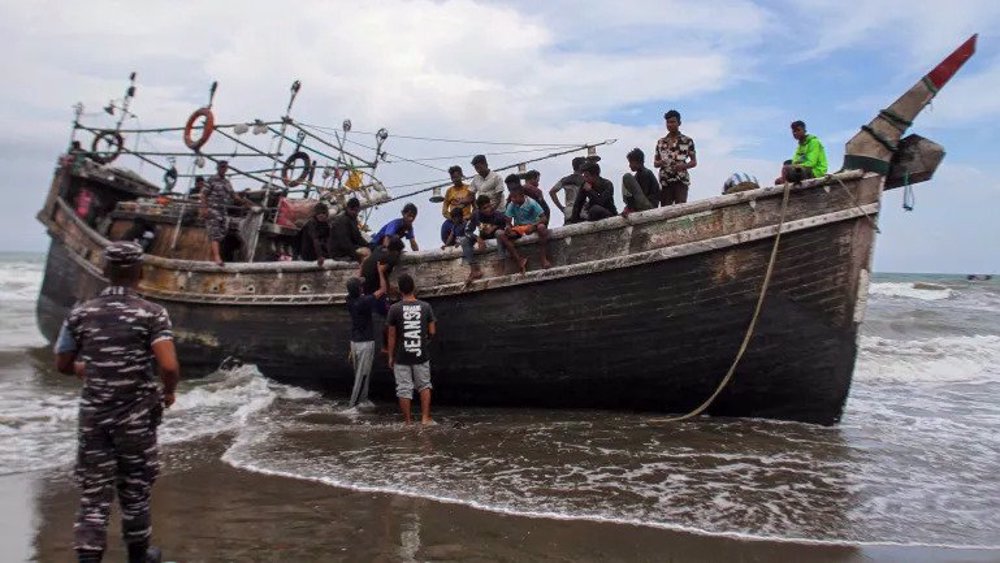
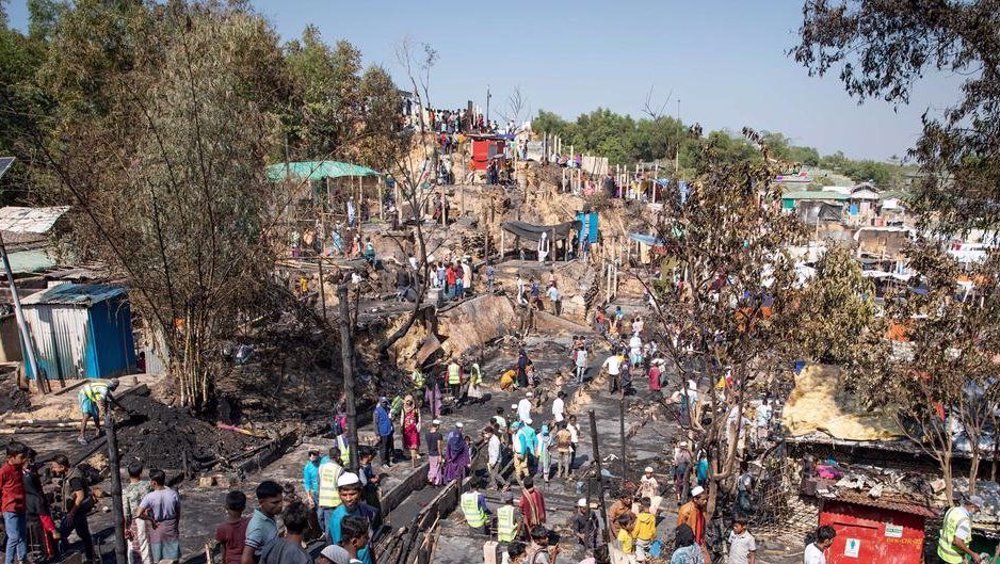
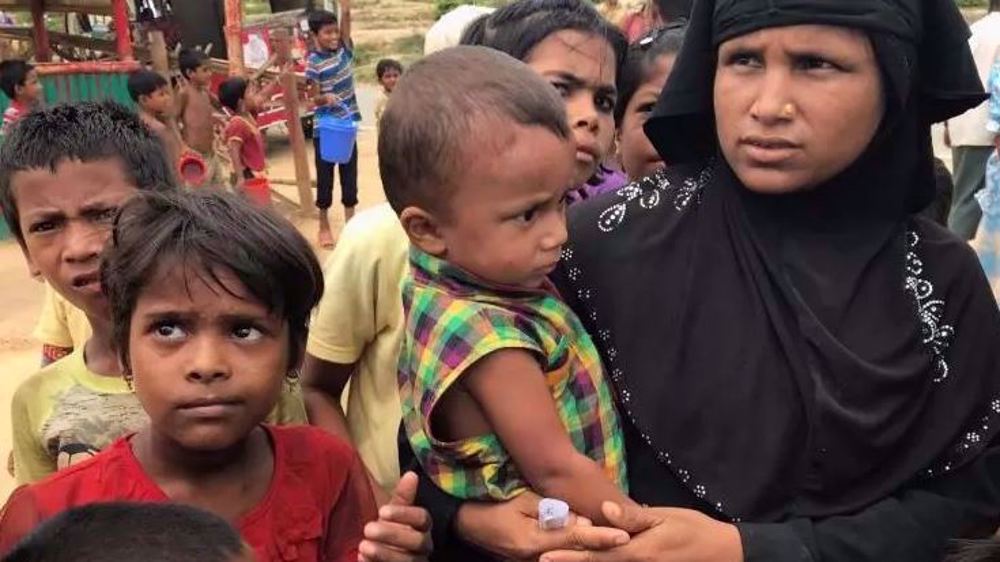






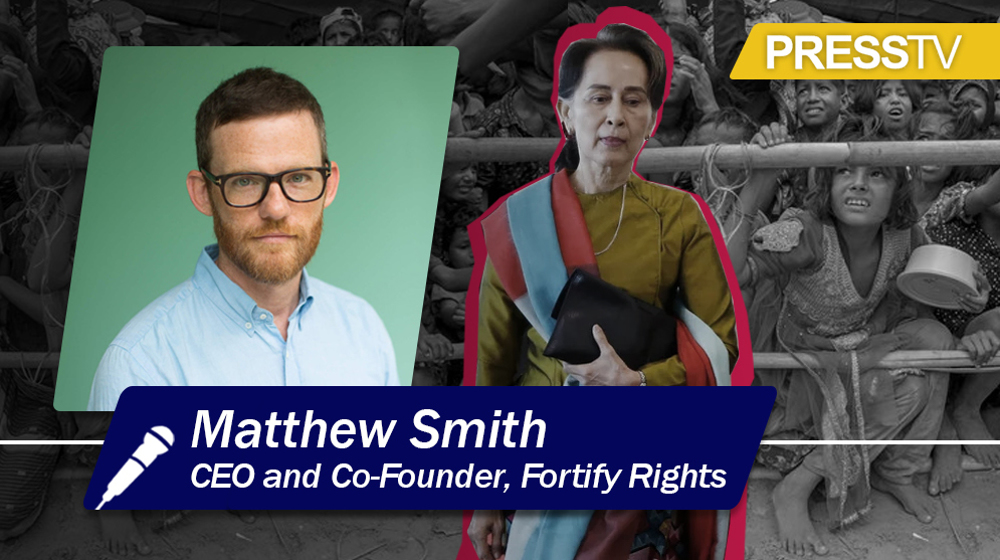
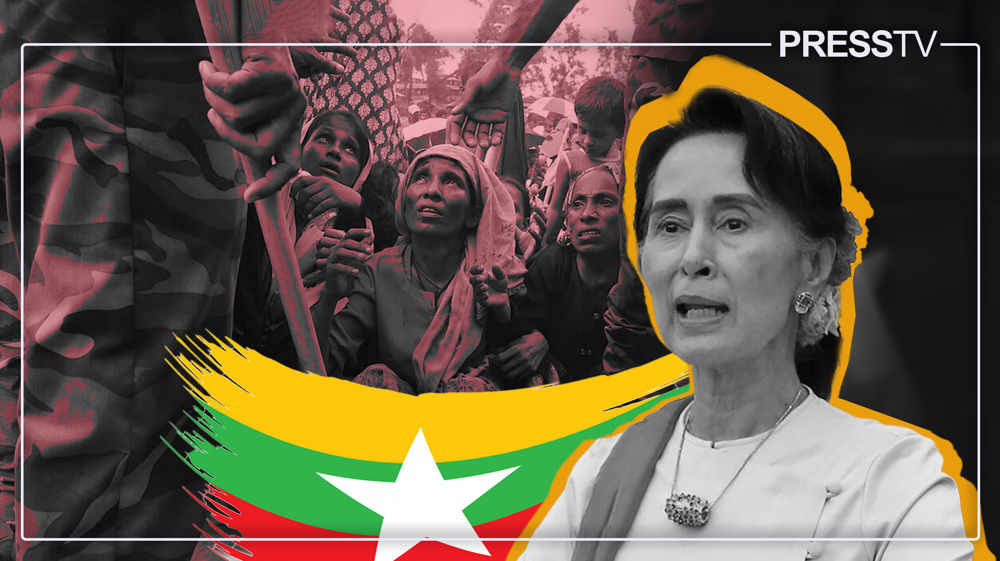
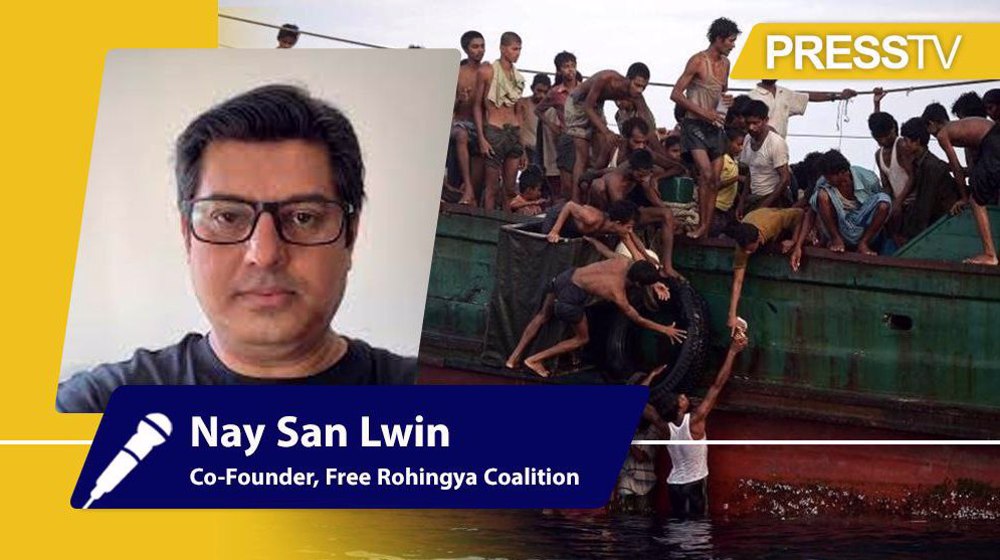
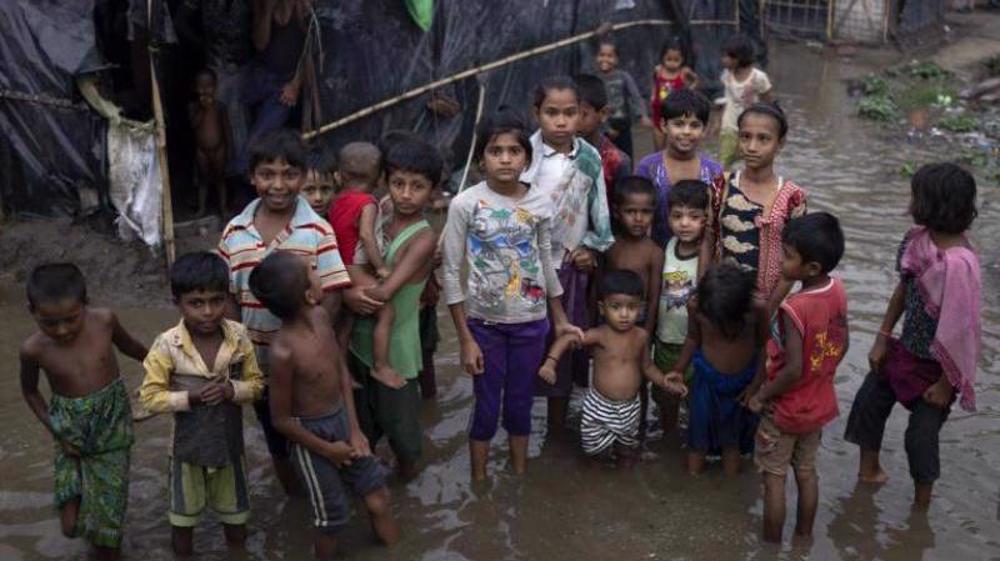
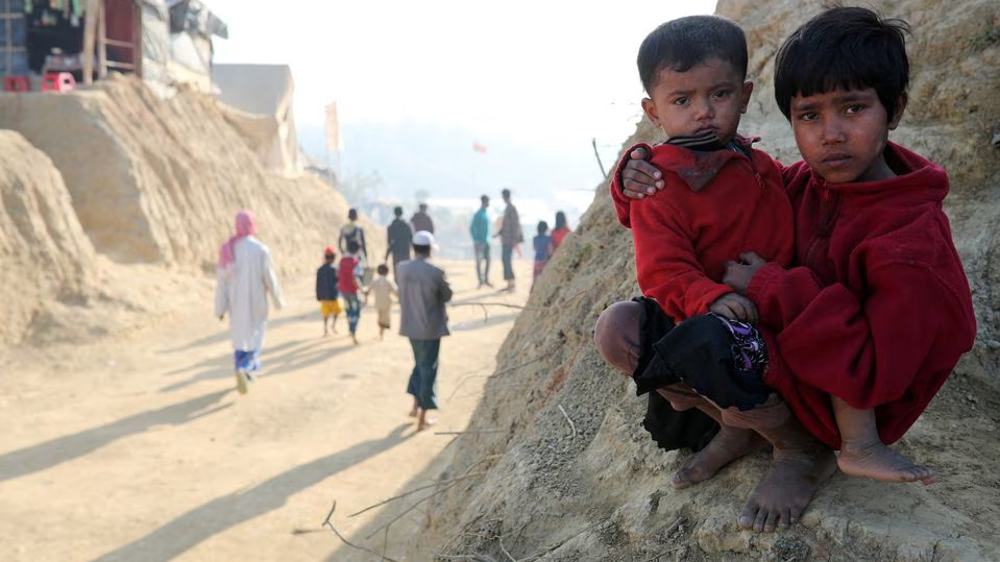
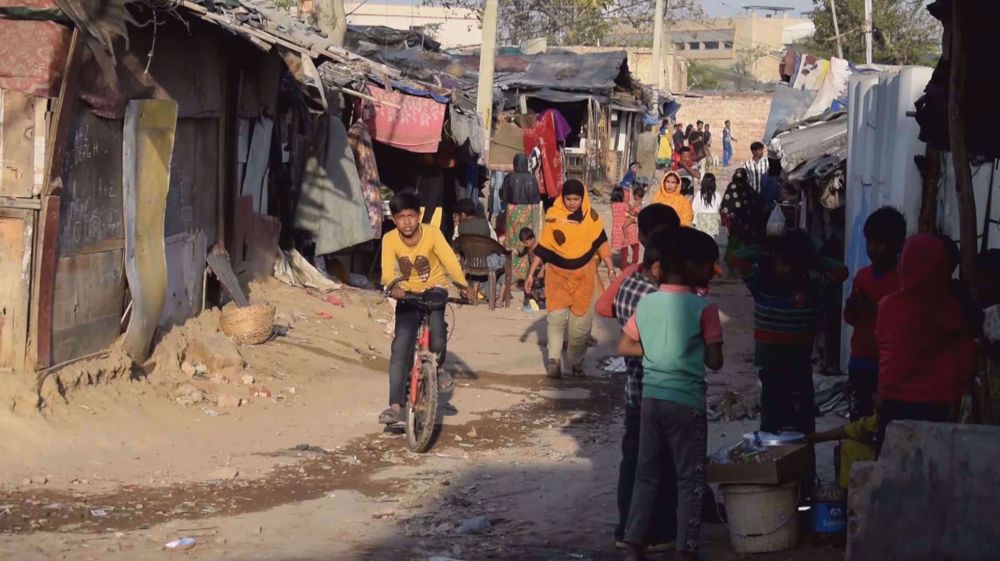

 This makes it easy to access the Press TV website
This makes it easy to access the Press TV website